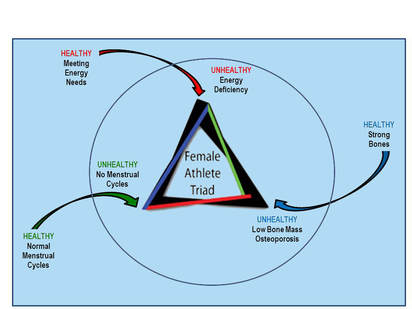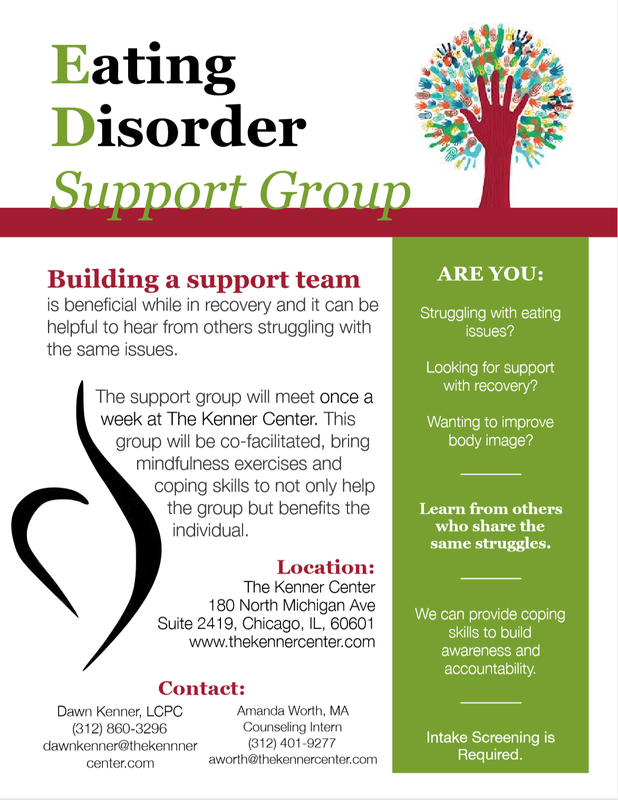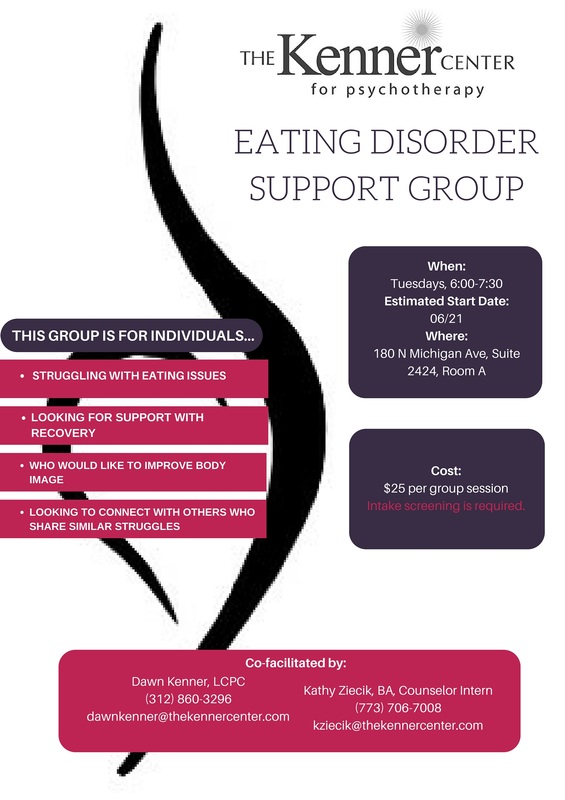|
Crushes are a part of being human starting from childhood and lasting into adulthood. Whether it's a passing attraction or a deep infatuation, crushes can have an influence on a relationship. Understanding how they affect us is key to maintaining committed partnerships, a topic often discussed in relationship counseling in Nashville.
The Nature of Crushes Crushes come in all shapes and sizes ranging from interests to obsessions. It's important to recognize what a crush means and how it fits into the picture of our lives. While some may see crushes as threats others view them as complex aspects of connection and attraction. Managing Crushes through Communication Communication plays a role in handling crushes within relationships. Being able to talk about feelings and boundaries is essential. Couples therapy often stresses the significance of conversations. When partners can discuss their crushes without fear it builds trust. Strengthens their bond. The Benefits of Couples Therapy For those grappling with how crushes impact their relationships, couples therapy can be a support system. Therapists who specialize in working with couples are skilled at assisting partners in navigating the complexities that crushes can bring into relationships. Through guided therapy sessions couples have the opportunity to delve into the underlying reasons behind crushes and learn how to manage them in a way. In Nashville relationship counseling services, such as those offered at The Kenner Center create an environment for these discussions. Understanding Crushes within Relationships Crushes can sometimes shed light on issues within a relationship signaling gaps in emotional or physical intimacy. Pre marriage counseling often focuses on addressing these dynamics to help couples establish a foundation before entering marriage. By uncovering the root causes of crushes, partners can strengthen their bond. Cultivate a meaningful connection. Approach of The Kenner Center The Kenner Center delivers psychotherapy and relationship counseling services in Nashville utilizing therapeutic approaches tailored to meet each patient's individual needs. Their methodology encompasses addressing health challenges like depression, anxiety and relationship struggles. For couples seeking support this may involve exploring how crushes impact their developing strategies for managing them. Dealing with Jealousy and Insecurity Feelings of jealousy and insecurity often arise when one partner experiences a crush on someone. If left unaddressed these emotions can strain the relationship. Marriage counseling offers tools and techniques for couples to navigate jealousy effectively and strengthen their bond while fostering security, within the partnership. Feeling jealous in a relationship doesn't always mean trouble; it's how partners handle those emotions that truly counts. Strengthening Relationships Having crushes doesn't have to harm connections. In reality they can serve as a chance to reinforce the bond between partners. By working through situations couples can improve their communication skills and strengthen their intimacy. Long term relationships require dedication and empathy and addressing crushes can be part of that journey. The Significance of Boundaries Establishing and honoring boundaries is vital when dealing with crushes. Couples therapy can assist in setting boundaries that safeguard the relationship while respecting space. Knowing and respecting each other's limits can prevent crushes from causing conflicts. When to Seek Support Not every crush necessitates help. There are moments when consulting couples therapists is beneficial. If a crush is causing distress or tensions within the relationship seeking guidance can be beneficial. Relationship counseling services in Nashville, like those offered at The Kenner Center provide expert assistance in navigating these situations. The Role of Personal Therapy At times having a crush may indicate issues that require attention. Engaging in therapy can aid in gaining insight into ones emotions and actions. The Kenner Center offers a range of health services taking an approach to care that considers the impact of romantic feelings, on personal and relational well being. Focusing on Specific Concerns The services provided by the Kenner Center cover health issues such as depression, anxiety, OCD, mood disorders, trauma, relationship challenges and chronic pain. They are well versed in treating eating disorders including issues like dieting, binge eating and body image struggles. This holistic method ensures that all aspects of an individual's well being are taken into account within the context of their relationships. The Advantages of Pre Marital Counseling Couples counseling and marital counseling can be highly beneficial for couples looking to address potential challenges proactively. By discussing topics like feelings, intimacy and communication skills before tying the knot couples can establish a foundation for their future together. The Kenner Center provides marital counseling services to help partners prepare for a committed relationship. Incorporating Romantic Feelings into a Healthy Relationship It is feasible to navigate having feelings for someone outside the relationship within a partnership. This involves acknowledging these feelings, understanding their roots and engaging in communication with one's partner. When couples face these challenges together they often discover that their relationship grows stronger and more fulfilling. In summary Having crushes is a part of being human. Can happen even in the most committed relationships. The key to dealing with their impact involves communication, empathy and seeking help when necessary. Services like relationship counseling provided by The Kenner Center in Nashville offers the tools and guidance to navigate the complexities of crushes and enhance bonds. Approaching crushes with openness and truthfulness can lead to connections and a satisfying relationship. Whether through joint therapy sessions, premarital counseling or individual therapy the resources at The Kenner Center can assist couples in fostering more relationships. Recognizing the role of crushes and learning how to handle them is essential for maintaining a loving partnership.
0 Comments
In today's paced society the mental well being of children is a growing concern. Parents and caregivers are increasingly alert to identifying signs of health problems in their ones. This attentiveness is crucial as recognition and support can greatly impact a child's health. Here are five prevalent mental health issues in children that parents should be mindful of.
1. Anxiety Disorders Anxiety disorders rank high among the mental health challenges affecting children. These conditions can present in ways, such as anxiety disorder (GAD) social anxiety disorder and specific phobias. Children with anxiety disorders often endure worry, fear and unease that can disrupt their routines and social interactions. Signs of Anxiety Disorders ● Persistent fear or worry ● Avoidance of situations or places ● Physical symptoms like headaches, stomachaches or fatigue ● Difficulty focusing ● Sleep disturbances Parents should take note of these indicators. Seek professional assistance if they suspect their child may be grappling with an anxiety disorder. Trauma focused counseling may offer support for children facing anxiety issues rooted in experiences. 2. Attention Deficit Hyperactivity Disorder (ADHD) Attention Deficit Hyperactivity Disorder (ADHD) is a health condition seen in children. It involves challenges, with attention, hyperactivity and impulsivity that are more pronounced compared to children of the age. Symptoms of ADHD include: ● Difficulty maintaining focus ● Forgetfulness in tasks ● Restlessness or an inability to stay still ● Talking or interrupting others ● Impulsiveness along with trouble waiting for their turn. Children with ADHD often face difficulties in school. May benefit from support and accommodations. Behavioral therapy, including counseling for trauma therapy can assist in managing symptoms and enhancing functioning. 3. Mood Disorders Mood disorders like depression and bipolar disorder can significantly affect a child's well being by impacting mood, energy levels and overall functionality in life. Symptoms of mood disorders include: ● Feelings of sadness or irritability ● Loss of interest in enjoyed activities ● Noticeable changes in appetite or weight ● Disruptions in sleep patterns as well as feelings of hopelessness or worthlessness. It is crucial for parents to be aware of these symptoms and seek assistance from health professionals. Trauma therapy services available in Nashville offer treatment options such, as talk therapy to address the root causes contributing to mood disorders. 4. Autism Spectrum Disorder (ASD) Autism Spectrum Disorder (ASD) is a condition that affects how individuals communicate, behave and interact socially. Children with ASD may display a variety of symptoms and different levels of severity highlighting the importance of identification and support. Signs of ASD include: ● Challenges in communication and social interactions ● Repetitive behaviors or specific interests ● Sensitivity to stimuli difficulties understanding verbal cues and a preference for routines. Early intervention programs play a role in helping children with ASD develop skills and enhance their overall well being. 5. Post-Traumatic Stress Disorder (PTSD) Moving on to Post Stress Disorder (PTSD) this condition can affect children who have been through experiences like abuse or accidents. PTSD can have effects on a child's emotional health leading to various symptoms such as: ● Flashbacks ● Avoidance of trauma reminders negative changes in thoughts and mood ● Hyperarousal and emotional detachment. Specialized trauma therapy options are available for children with PTSD in Nashville. Providing trauma informed care, such as therapy sessions and counseling tailored to address trauma can assist children in processing their experiences and developing coping mechanisms. 6. Dealing with Mental Health Conditions in Kids Recognizing and addressing health conditions in children is crucial for their growth and well being. It's important for parents and caregivers to be mindful of the signs and symptoms of these conditions, seek help when needed and consider the various treatment options available through trauma therapy services in Nashville to meet the needs of children facing mental health challenges. Factors Contributing to Children's Mental Health Conditions Several factors can contribute to the onset of health conditions in children including: ● Genetic predisposition ● Exposure to traumatic events ● Family history of mental illness ● Chronic medical issues ● Environmental stressors Understanding these contributing factors can empower parents and caregivers to take proactive measures in supporting their child's mental well-being. Timely intervention and consistent assistance from health experts can have an impact. Wrap Up Being aware of the disorders seen in children is a crucial initial step, towards offering essential support and appropriate intervention. Anxiety disorders, ADHD, mood disorders, autism spectrum disorder and PTSD are some health issues affecting kids today. Identifying the signs and reaching out to experts can have an impact on a child's well-being. The Kenner Center in Nashville, Tennessee provides a range of treatment options tailored to the unique needs of children experiencing mental health challenges. By being mindful of their child's well-being and finding the help parents can aid their child in moving towards a brighter and more fulfilling future. Eating disorders are health issues that can result in significant physical and emotional repercussions. These conditions impact individuals of ages, genders and backgrounds. Early identification of warning signs related to eating disorders is crucial, for intervention and effective treatment. At The Kenner Center we are dedicated to supporting individuals facing eating disorders by providing a range of tailored treatment options to address each patient's requirements. In this blog post we will delve into the eating disorders, their indications and symptoms. How to spot the early warning signs.
Individuals with eating disorders often fixate on their weight and body image in a manner. Warning signs may involve: Frequently checking oneself in the mirror, for any imperfections worrying about the number displayed on the scale expressing dissatisfaction with one's weight despite being underweight and avoiding eating in public or with others are behaviors associated with body image concerns. Physical Health Changes When it comes to health changes linked to eating disorders there can be a variety of issues that may arise. Keep an eye out for these indicators:
Emotional and Behavioral Signs: Apart from changes related to eating habits individuals struggling with eating disorders might also display emotional and behavioral cues like:
Specific Signs of Anorexia Nervosa In cases of anorexia nervosa specifically some distinctive signs to watch out for could include:
Specific Signs of Bulimia Nervosa: People with bulimia nervosa may display signs, including:
Specific Indicators of Binge Eating Disorder: Individuals grappling with binge eating disorder may exhibit warning signals such as:
Impact on Physical Well being: Eating disorders can lead to repercussions on health potentially resulting in issues like:
The Kenner Centers Role: At The Kenner Center we recognize that each persons journey through an eating disorder is unique. We offer treatment for a range of eating disorders, such as chronic dieting, binge eating, body image concerns and eating disorders in males. Our collaborative approach involves internists, nutritionists and psychiatrists working together to provide top notch care. Treatment Approaches at The Kenner Center: We provide treatment methods tailored to meet our patients individual needs:
In conclusion Eating disorders are issues that need attention and care. Recognizing the signs and symptoms is crucial, in getting help for yourself or a loved one. Here at The Kenner Center we are committed to offering empathetic assistance to individuals dealing with eating disorders. If you notice any signs of an eating disorder, in yourself or someone you know don't hesitate to ask for help. Taking action early can greatly impact the path to recovery. Shedding Light on Diabulimia: The Intersection of Diabetes and Eating DisordersIntroduction4/6/2024 Diabulimia, a term that merges diabetes with bulimia, is a lesser-known but potentially dangerous condition that affects individuals managing type 1 diabetes. It involves the deliberate misuse of insulin for weight control purposes, often leading to severe health complications. In this blog post, we'll delve into what diabulimia is, its causes, signs, and the importance of early detection and treatment.
Diabulimia is not officially recognized as a medical diagnosis but is commonly used to describe the phenomenon where individuals with type 1 diabetes deliberately restrict or manipulate their insulin intake to lose weight. Insulin is a crucial hormone for regulating blood sugar levels, and its misuse can lead to serious health consequences. The causes of diabulimia are complex and multifaceted, often stemming from a combination of factors including societal pressure to attain a certain body image, fear of weight gain associated with insulin therapy, and psychological issues such as low self-esteem, depression, or anxiety. Additionally, the relentless demands of managing diabetes can contribute to feelings of overwhelm and a desire to regain a sense of control, albeit in a harmful manner. Recognizing the signs and symptoms of diabulimia is crucial for early intervention and treatment. Some common indicators include:Unexplained weight loss despite increased food consumption, Poor blood sugar control or frequent episodes of hyperglycemia,Excessive urination and thirst, Fatigue and weakness, changes in mood or behavior, such as increased irritability or withdrawal, and obsessive preoccupation with body weight and shape. Left untreated, diabulimia can lead to severe health complications, including diabetic ketoacidosis (DKA), nerve damage, kidney problems, cardiovascular issues, and even death. Therefore, early intervention is essential to address both the physical and psychological aspects of the condition. Treatment typically involves a multidisciplinary approach, including medical management of diabetes, nutritional counseling, psychotherapy, and support groups. One of the biggest challenges in addressing diabulimia is the stigma surrounding both diabetes and eating disorders. Individuals may feel ashamed or embarrassed to seek help, fearing judgment or misunderstanding from others. It's important to break down these barriers and create a safe, supportive environment where individuals feel empowered to reach out for assistance. Diabulimia is a complex and often misunderstood condition that requires greater awareness and understanding within both the medical community and society at large. By recognizing the signs and symptoms, promoting early intervention, and fostering a supportive environment, we can help individuals living with type 1 diabetes receive the comprehensive care they need to overcome diabulimia and lead healthier, happier lives. If you or someone you know is struggling with diabulimia, don't hesitate to seek help from a healthcare professional or support group. Recovery is possible with the right support and resources. Eating disorders are more common than you think. Those suffering with an eating disorder can feel ashamed, afraid, and embarrassed. Most do not want to be a burden to their family or friends so they hide their eating disorder. Support is a huge component on the road to recovery from this life threatening disease. Being an individual’s support is not easy, but you can do it. It is easy to feel shame or take blame for the illness, but you need to know this is not your fault nor is it the fault of the individual living with an eating disorder. You need to accept you did not cause the illness and instead be strong for the one you are supporting.
First, learn all that you can about eating disorders so you can better understand the daily thoughts and actions of the individual you are supporting. The more you know and learn about the illness will only benefit you in pointing out concerns. Second, learn how to communicate concerns without putting blame or shame on the individual. Using “I” statements is the best way to communicate how you feel as the supporter. Learning how, when and where it is appropriate to talk about the illness can be beneficial to building a supportive relationship. You do not want to put an individual on the spot around others who may be unaware of the situation, but you also want to learn to be encouraging and supportive in public. Do not forget about you! It can be easy to put aside what you need and put others before yourself especially when they are battling a life threatening illness. There are support groups for individuals specifically supporting loved ones with eating disorders. Take advantage of these groups so you can discuss frustrations, struggles, highs and lows you may be experiencing and to ultimately know you are not alone. Do not be afraid to tell someone if your friend or loved one needs help. Addressing and acknowledging the body image or eating problem is one of the first steps. Talk to a professional, do not wait for the issue or symptoms to progress further before deciding to tell someone. Encourage the individual suffering to seek professional help. Individuals suffering with an eating disorder need professional help from therapists, dietitians and physicians as well as your support to help guide them on a road of recovery which can be tough. Keep in mind seeking help for an individual with body image issues or an eating disorder can be difficult and scary for them. There can be hesitation on their part to commit to seeking professional help and following through with appointments. You need to be able to stand by them and remind them why they are seeking help, remind them of their goals and why they want to get better. A lot of the time their thoughts will be feed or clouded by the eating disorder to which they need the reminder to why they want to get well and stay focused on recovery. If you are in public, at a social gathering or just having a simple dinner at home remember the tips provided above. You want to continue to be a sense of support but also want to be firm. You want to be firm when promoting positive encouragement and know they are responsible for their own actions. Understand treatment is not easy and setbacks and relapse are generally part of the road to recovery. If someone you care about is struggling, remind them of their goals and why they want to want to get better. If you are looking for resources to learn more and how to support an individual suffering from an eating disorder, refer to the National Eating Disorder Association (NEDA), Academy for Eating Disorders (AED) websites, as well as local certified professionals specialized in eating disorders. Written by: Amanda Worth, MA Originally written for The Sanity Snack Health and mental professionals have been aware of the concept female athlete triad and the risks posed to all females. Females who tend to play sports or exercise intensely are at greater risk of developing female athlete triad. Some of you may be wondering, what is female athlete triad? Female athlete triad was identified 1992 as the combination of three conditions: disordered eating, loss of bone density or osteoporosis and loss of menstrual periods. Although more commonly characterized with the three conditions, female athlete triad is now characterized on a spectrum. The spectrum allows for relation to varying combinations of three conditions. An individual no longer needs to identify with all three conditions originally identified to female athlete triad.
It is very common for an individual to be working on improving performance and to be focused on keeping a competitive edge to a point where they are harming themselves. Focus and dedication can become a distraction from messages your body may tell you. For example, your body may tell you to slow down or something is wrong. Some sports classify athletes by weight class, so weight can become a primary focus in training, putting pressure on an athlete, which presents significant health risks. When an athlete starts cutting food and increases training to lose weight to improve performance, they are doing themselves a disservice. When food is restricted, nutrients are no longer feeding the muscles causing them to weaken. This is a common misconception with athletes restricting themselves in one area, in this case with food, to try and benefit or improve athletic or exercise performance. Diagnosis and treatment of this potentially serious condition is complicated and often requires an interdisciplinary treatment team. Signs and Symptoms to be aware of (Please consult a professional):
Tips for Female Athlete and exercise enthusiasts:
Written by Amanda Worth, MA References: http://www.femaleathletetriad.org/athletes/what-is-the-triad/ https://kidshealth.org/en/teens/triad.html https://www.ncbi.nlm.nih.gov/pmc/articles/PMC5532188/ |
Dawn KennerWriting about issues related to psychotherapy, body image, and eating disorders Archives
June 2024
Categories |






 RSS Feed
RSS Feed